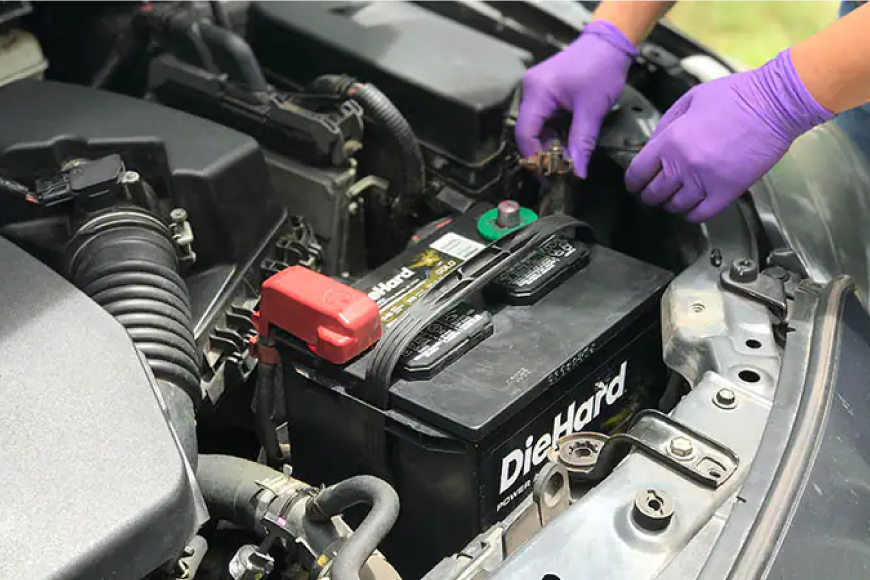How Often Should I Replace My Car Battery?
When buying a new car, we often get caught up in the flashy features and sleek designs but don’t forget to give the battery some attention too. So, before sealing the deal, take a quick peek under the hood. Check for any signs of corrosion or leaks, and make sure the terminals are tight and clean. Give it a test drive to ensure all those fancy electronics are working smoothly. Trust me, a little battery check can save you from future road trip problems.
When buying a new car, it’s crucial to check the car battery’s condition. A healthy battery ensures reliable starts and excellent performance. Ask the dealer or seller about the battery’s age and warranty coverage. Inspect the battery terminals for damage or corrosion. Request a battery load test to assess its capacity and health. Ensure the car starts easily and without any issues during the test drive. If the battery is old or showing signs of weakness, negotiate for a battery replacement or warranty extension. Investing in a good battery ensures a trouble-free ownership experience and avoids unexpected breakdowns.
In the bustling city of Dubai, where residents rely heavily on their cars for daily transportation, regular car battery checkups are of utmost importance. The extreme heat and high temperatures in this desert metropolis can accelerate battery wear, making routine inspections and car repairs vital to avoid sudden breakdowns. By adhering to a proactive approach and scheduling frequent battery checkups or car battery replacements, Dubai’s motorists such as We Fix Car can ensure their vehicles remain dependable and their batteries are in peak condition, navigating the vibrant cityscape with confidence and peace of mind.
Car Battery Reliability Years
Car batteries typically have a lifespan of around 3 years before they start to wear down. Over time, the repeated charging and discharging cycles, as well as exposure to extreme temperatures, can lead to diminished performance. As the battery ages, its ability to hold a charge diminishes, resulting in difficulty starting the car, dimming lights, and electrical issues. Regular maintenance, such as keeping terminals clean and checking electrolyte levels, can prolong battery life. However, factors like driving habits and climate also affect battery longevity. To ensure reliable performance, it’s advisable to replace the car battery after three years.
Car batteries often become unreliable after 3 years, despite having a 5-year warranty. While the warranty offers replacement within the specified period, it’s wise to monitor the battery’s performance and consider replacement to avoid unexpected breakdowns in the middle of a trip.
Electrical System Performance
The car battery’s life directly impacts the electrical system’s response. As the battery ages and loses its capacity, the electrical system may experience issues. Dimming headlights, slow cranking, and flickering dashboard lights are signs of a weakening battery. Additionally, electronic components may malfunction or reset unexpectedly. Monitoring the electrical system’s behavior can help catch battery problems early. If the electrical system shows signs of instability or reduced performance, it’s crucial to test the battery’s voltage and health. Timely detection and replacement of a failing battery can prevent more severe electrical system failures and avoid potential breakdowns on the road.
Battery Strain Increased with Updated Technology
New model cars often put more strain on the battery compared to older models. Modern vehicles come equipped with advanced features like infotainment systems, power accessories, and complex electronic components. These demand more power from the battery, leading to increased energy consumption. Additionally, new cars may have start-stop technology and regenerative braking systems, which further impact the battery’s workload. While newer batteries are designed to handle higher demands, the strain remains higher due to the increased power requirements of modern vehicles. Regular maintenance and monitoring of battery health are essential to ensure optimal performance and longevity in new model cars.
Frequent Battery Checkups
For increasing the vehicle and its battery life, regular maintenance and service are required. Frequent car battery checkups are highly advised for proper car maintenance. The battery is a critical component that provides the necessary electrical energy to start the engine and power various electrical systems in the vehicle. Regular checkups help ensure the battery’s health and early detection of any potential issues.
During battery checkups, the mechanic will examine the battery’s physical condition, check for corrosion on the terminals, and measure its voltage and capacity. This helps identify signs of wear and tear, which are common over time.
By conducting frequent battery checkups, car owners can prevent unexpected breakdowns and avoid being stranded with a dead battery. It allows for timely replacement if the battery is approaching the end of its life. Moreover, detecting battery issues early can prevent damage to other electrical components, which could be affected by a failing battery.
To maintain a healthy battery, owners should also ensure that the vehicle’s electrical systems, such as the alternator and starter, are working correctly, as these can impact battery performance. Additionally, keeping the battery and terminals clean and free from corrosion will enhance its longevity.
Extend Your Battery Life
To extend a car battery’s life, follow these key measures:
1. Regular Maintenance: Keep the battery and terminals clean and free from corrosion.
2. Proper Charging: Use a smart charger to avoid overcharging and undercharging.
3. Avoid Short Trips: Limit frequent short trips that don’t allow the battery to recharge fully.
4. Moderate Temperature: Park in the shade during extreme heat or use battery blankets in cold weather.
5. Limit Electrical Load: Minimize prolonged use of accessories when the engine is off.
6. Check Alternator: Ensure the alternator is functioning correctly to keep the battery charged.
7. Disconnect When Inactive: Disconnect the battery when the vehicle will be idle for an extended period.
Replacing Car Battery
On average, car batteries should be replaced within 3 to 5 years. However, the actual lifespan depends on various factors, including driving habits, climate, and maintenance. Regular battery checks and monitoring of performance can help determine when it’s time for a replacement.
Conclusion
Regular maintenance and monitoring are crucial to ensure a car battery’s optimal performance and longevity. Replacing the battery within its expected lifespan will prevent unexpected breakdowns and maintain a reliable electrical system, offering peace of mind during every journey.



